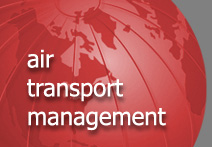|
20 Dec 05
It has never been easy being a GSA, in fact, it is never easy being a representative type of agent in any industry. You are taken on because your client has little or no market and thus is reluctant to commit to a full office with all the associated costs. A competent and well-respected agent is the answer, but when that agent is indeed so competent that he develops a significant level of business, it suddenly becomes viable for the client to establish his own operation.
Fortunately that does not happen too much in the air cargo industry, but the risk is always there. A bigger threat is the constant downward pressure on commissions. Rising fuel costs and other overheads have been cited as the reason for the reductions, but will the airlines reap a different crop to the one they hope?
There are a number of problems hitting GSAs both small and large at the moment. Inevitably, global alliances which enable an in-house sales presence where there was previously a GSA, is a major threat. For example, the changes over the past two years involving KLM, Air France and Northwest have enabled a considerable rationalisation of sales effort.
Alliances can also result in a client airline’s strategic partner offering or increasing capacity on a shared route, and thus the GSA will thus lose business to the other carrier.
A contentious point is surcharges. Airlines levy them to cover increased costs, yet they are, mainly, not commissionable. Thus, where rates have dropped to allow the total rate per kilo paid to remain largely unchanged, the GSA earns less and less. Further, if that GSA also collects revenues for his client airline, he is servicing a bond to cover his exposure but he is getting commission on less and less of that exposure.
Airlines will stand firm and often quite rightly state that they are making logical commercial decisions to stay in business, but if it is at the expense of a quality GSA, then what is the ultimate price?
| 
